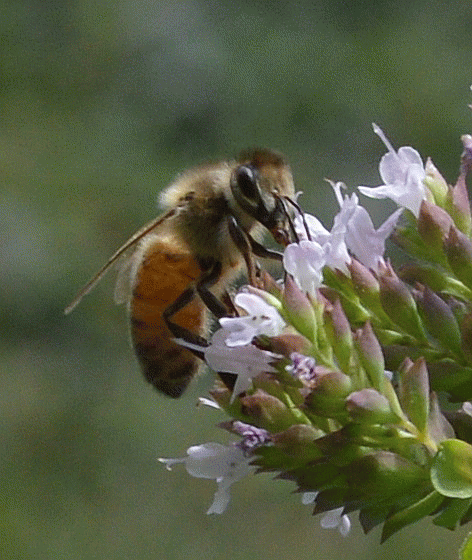"Through all of its phases, scientific research is subject to repression, manipulation and more insidious forms of control that push it toward a profit-based consensus."
Don Fitz, Truthout | News Analysis
Realization
I recently studied the behaviors of social bees and ants. All my sources described the insect actions as being instinctual. The insects go about in colonies or hives of tens of thousands of individuals in a very organized way, responding quickly and efficiently to changes like attacks by predators or weather-related disasters like floods. In the case of honey bees, after the larva pupate and emerge out of their nest chambers as adults, they progress, job after job, from housekeeper, to nursemaid, then construction worker, grocer, undertaker, guard and, finally, to forager.
Hives or nests are well taken care of and efficiently run, with all the members having a job and then doing it as matter of course. In the absence of man-made toxins, the colonies have historically prospered; it is thought that there are more ants in the world than any other creature. I looked at these nicely running societies, compared them to human societies, and started wondering.
I have been troubled with how irrational I see human actions to be. Humans are leading the earth into another mass extinction and will likely be one their own victims. The dangers of climate change are told to us on a near daily basis; reasonable methods of stopping the downward spiral are presented; yet, as tipping point after tipping point are crossed, CO2-spewing business progresses as usual. Something seems wrong with this picture.
It has been drummed into me since I was a child that humans are the only rational beings: other animals act by instinct. That just did not add up, and the more I looked into this, I could not help but conclude that humans are not rational. They act on gut feelings, instinctual behaviors that were useful when humans lived in hunter-gatherer tribal situations. Then, this allowed packs of humans to flourish as they hunted together and provided mutual protection. I have tried to put labels on the instincts that I have observed. Fight or flight instincts are easy to see. Hoarding and greediness are far more pronounced in humans than in chipmunks or in jays, who efficiently grab and bury extra food. However, those rodents and birds do not burden themselves with tons of extra "stuff" to store and care for. Nurturing of young and compassion are common. But the observable instinct that seems to stand out is the tribal, or herd, instinct; the instinct to fit in with peer groups, whether in religious settings, political parties, fraternities, work settings, etc.
I noticed that people act on their "gut" instinct and that appears to override any evidence-based "reason." That is especially true when those gut instincts were formulated as part of tribal influence. People will overspend their budgets to wear uncomfortable clothes or shoes if that helps them fit in. They will risk their lives to kill people in other tribes if their political, religious or gang leaders tell them to. They will destroy vast parts of the earth if their cohorts believe that is an okay way of making money. None of this appears "rational" to me, but it fits very well with my hypothesis of instinctual behavior.
Evolutionary Benefits of Instinctual Behavior
(Note: You can view every article as one long page if you sign up as an Advocate Member, or higher).






